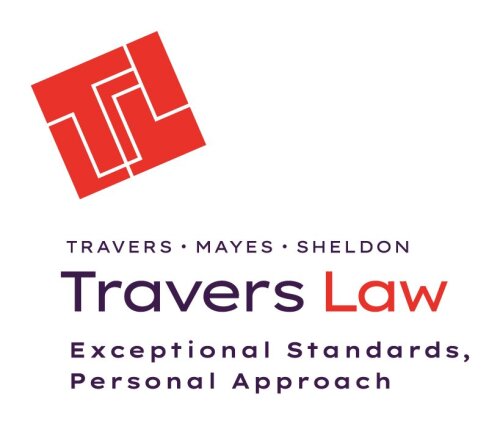Best Family Lawyers in Waterloo
Share your needs with us, get contacted by law firms.
Free. Takes 2 min.
Free Guide to Hiring a Family Lawyer
List of the best lawyers in Waterloo, Canada
Canada Family Legal Questions answered by Lawyers
Browse our 1 legal question about Family in Canada and read the lawyer answers, or ask your own questions for free.
- Hi there,I've been separated for 20yrs,would like to get divorced,
- What's the procedure, or legalities I'm facing, an how can you help?
-
Lawyer answer by mohammad mehdi ghanbari
Hello, Thank you for reaching out. I understand that navigating a divorce after a long period of separation can be a challenging and uncertain process, and I can offer some general guidance on the matter. General Divorce Procedure The first...
Read full answer
Canada Family Legal Articles
Browse our 1 legal article about Family in Canada written by expert lawyers.
- How to File for Divorce in Canada: A Step-by-Step Guide
- Family law in Canada covers separation, divorce, parenting, child support, spousal support, and property division, with rules split between federal law (Divorce Act) and provincial or territorial laws. You do not need a court order to separate, but you do need a court-issued divorce to legally end a marriage and... Read more →
About Family Law in Waterloo, Canada
Family law in Waterloo, Ontario, covers a wide range of legal matters involving relationships and families. This includes issues such as marriage, divorce, child custody and access, child and spousal support, division of property, adoption, and protection from abuse. The family law system aims to protect the rights of individuals and families, promote fairness, and prioritize the best interests of children. Family law cases in Waterloo are typically dealt with through the Ontario Court of Justice or the Superior Court of Justice.
Why You May Need a Lawyer
Many people find themselves needing legal advice or representation in family law for a variety of reasons. Common situations include:
- Separation or Divorce: Understanding your rights, and obligations, and navigating complex legal processes.
- Child Custody and Access: Arranging parenting agreements, resolving disputes, and ensuring the best interests of the child are prioritized.
- Child and Spousal Support: Determining entitlement, calculating amounts, and enforcing or modifying existing support orders.
- Division of Property: Dividing assets and debts after separation or divorce.
- Adoption: Managing complicated legal requirements for adopting a child.
- Family Violence: Obtaining restraining orders or navigating the legal system to ensure safety.
- Prenuptial/Separation Agreements: Drafting and reviewing legal agreements to protect your rights.
A family law lawyer can help you understand your rights, comply with local laws, negotiate fair agreements, and represent your interests in court if necessary.
Local Laws Overview
Family law in Waterloo operates under both federal and provincial legislation. Federal laws, such as the Divorce Act, govern matters related to divorce, while provincial statutes like Ontario's Family Law Act and Children's Law Reform Act cover issues such as property division, child custody, and support within Ontario relationships.
Key aspects of local family law include:
- Best Interests of the Child: Decisions about children are always made with this guiding principle in mind.
- Equalization of Property: Upon separation or divorce, married couples typically share in the value of property acquired during the marriage.
- Support Obligations: Both parents have a legal responsibility to support their children financially. Partners may also owe each other spousal support depending on circumstances.
- Alternative Dispute Resolution: Mediation and collaborative law approaches are encouraged before resorting to litigation.
- Protection Orders: Legal measures exist to protect individuals from family violence or harassment.
Courts in Waterloo are equipped to handle family matters, and procedures may differ slightly depending on the specific court.
Frequently Asked Questions
What are the grounds for divorce in Waterloo?
The only ground for divorce in Canada, including Waterloo, is a breakdown of the marriage. This is typically established by living separate and apart for at least one year or through proving adultery or cruelty.
Do common-law couples have the same rights as married couples?
Common-law couples (who have lived together in a conjugal relationship for at least three years, or less if they have a child together) have some, but not all, of the same rights as married couples, particularly regarding property division. However, they have similar rights for child custody, access, and support.
How is child custody determined?
Custody decisions are based on the "best interests of the child," considering factors such as the child’s needs, parental abilities, and the child’s relationship with both parents.
How is child support calculated?
Child support is calculated using the Federal Child Support Guidelines, which consider the paying parent's income and the number of children. Both parents remain responsible for supporting their children financially.
What happens to the family home after separation?
For married couples, both spouses have an equal right to remain in the matrimonial home, regardless of who owns it. During the division process, the value is shared equally unless a court orders otherwise.
Do I need to go to court for a family law issue?
Not always. Many issues can be resolved through mediation, negotiation, or other alternative dispute resolution processes. Court may be necessary if an agreement cannot be reached.
Can grandparents apply for access to their grandchildren?
Yes, grandparents may apply for access or contact with their grandchildren. The court will consider the best interests of the child in making a decision.
What should I do if I fear for my safety or my children’s safety?
If you are in immediate danger, call 911. You can also apply for restraining orders and seek shelter with support from local organizations for victims of family violence.
How long does a divorce take in Waterloo?
The length of a divorce process can vary. A simple, uncontested divorce may take several months, while more complex cases involving disputes over custody, support, or property can take longer.
Do I have to pay my spouse’s legal fees?
Courts may order one party to pay some or all of the other’s legal fees, especially if one party has acted unreasonably. Normally, each party pays their own legal costs.
Additional Resources
If you are seeking legal advice in family law, these resources can provide helpful information and support:
- Legal Aid Ontario: Provides legal assistance for eligible low-income individuals.
- Ontario Ministry of the Attorney General: Offers guides, forms, and general information on family law processes.
- Family Law Information Centres (FLIC): Located in courthouses, provides free information and resources for family law matters.
- Waterloo Region Community Legal Services: Offers services for those who meet financial and legal eligibility.
- Women's Crisis Services of Waterloo Region: Provides support for victims of domestic violence, including shelter and safety planning.
- Local Mediators and Family Law Practitioners: Many professionals specialize in collaborative law and mediation services in Waterloo.
Next Steps
If you need legal assistance for a family law matter in Waterloo:
- Gather all relevant information and documents related to your issue (e.g., marriage certificate, financial records, correspondence).
- Consider your options, such as mediation or negotiation, before court involvement.
- Contact a qualified family law lawyer in Waterloo for a consultation. Many offer initial consultations to discuss your case and options.
- Visit your local Family Law Information Centre (FLIC) for free initial information and guidance.
- If cost is a concern, check if you qualify for Legal Aid Ontario or other community legal services.
- Prioritize your safety and well-being, especially in cases of family violence-reach out to local resources immediately if needed.
Taking the right steps early can help ensure your legal rights and interests are protected and can help resolve your family law matter as smoothly as possible.
Lawzana helps you find the best lawyers and law firms in Waterloo through a curated and pre-screened list of qualified legal professionals. Our platform offers rankings and detailed profiles of attorneys and law firms, allowing you to compare based on practice areas, including Family, experience, and client feedback.
Each profile includes a description of the firm's areas of practice, client reviews, team members and partners, year of establishment, spoken languages, office locations, contact information, social media presence, and any published articles or resources. Most firms on our platform speak English and are experienced in both local and international legal matters.
Get a quote from top-rated law firms in Waterloo, Canada — quickly, securely, and without unnecessary hassle.
Disclaimer:
The information provided on this page is for general informational purposes only and does not constitute legal advice. While we strive to ensure the accuracy and relevance of the content, legal information may change over time, and interpretations of the law can vary. You should always consult with a qualified legal professional for advice specific to your situation.
We disclaim all liability for actions taken or not taken based on the content of this page. If you believe any information is incorrect or outdated, please contact us, and we will review and update it where appropriate.
Browse family law firms by service in Waterloo, Canada
Waterloo, Canada Attorneys in related practice areas.










